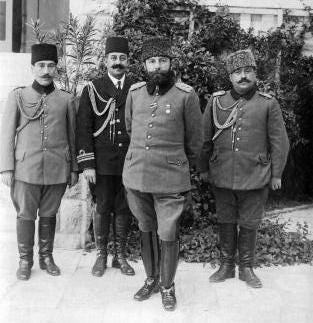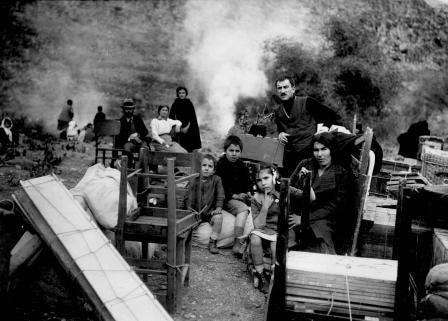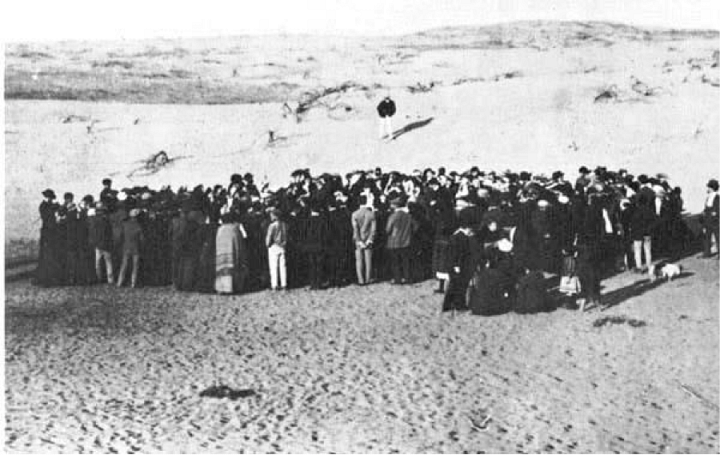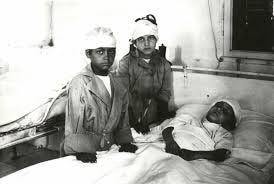Forgotten Footnotes of History: The Expulsion of Jews from Tel Aviv Under Ottoman Rule
December 17, 1914, Ottoman authorities ordered the expulsion of Jews from Tel Aviv
Throughout history, the expulsion, persecution, and violence against Jews have been central to Jewish history. From the ancient exiles to World War II, culminating in the Holocaust, and extending to the most recent chapter, the "Exile of Jews from the Muslim world," the suffering of Jews at the hands of foreign powers is well-documented and, for the most part, very cruel. Yet, there is one chapter of this history that is rarely discussed; it is not even a footnote in the conversation: the expulsion of Jews from their own ancestral homeland in modern times.



This forgotten history is long, but in modern times began 110 years ago today, a day that would come to be known as "Black Thursday." On December 17, 1914, Ottoman authorities ordered the expulsion of Jews from Tel Aviv, a city founded only five years earlier by 66 Jewish families, by the end of the three-month campaign, nearly 12,000 were ethnically cleansed from Ottoman-controlled Palestine.
On that "Black Thursday," Turkish police went door-to-door in Tel Aviv, forcibly expelling thousands of Jews to Egypt. Families were separated, and most possessions were left behind. The expelled Jews were taken to the port of Jaffa, where the ship "Florio" awaited to transport them to Egypt. Over the next three months, Turkish authorities continued to expel more Jews, sending them on various ships to Alexandria or forcing them to flee ahead of the deportations.


The empty land on which Tel Aviv was built had been purchased by the Jewish community at a premium price from an Arab landowner, transforming what was once an undeveloped plot into a thriving, bustling city. Tel Aviv became a symbol of Jewish perseverance and the rebirth of Jewish life in the Jewish ancestral homeland. A city founded only five years earlier had grown into a thriving urban center, complete with a port, schools, and cultural institutions, all built by the Jewish community.



In Egypt, Jewish refugees faced harsh conditions, including overcrowded camps and limited resources. However, local Jewish communities provided assistance, helping them rebuild their lives. As soon as they heard about the arrival of the ship "Florio" in Egypt, Egyptian Jews founded a committee to help the Jewish refugees. The refugees were able to create a full community life, with educational and cultural activities, while waiting for the opportunity to return to their homeland.



Three years later, in 1917, the remaining 9,000 Jews of Jaffa were also deported and forced to flee, this time north, enduring starvation and disease along the way. Their reliance on monetary support from Jewish communities abroad was disrupted by Turkish authorities as World War I progressed, leaving Jews in Ottoman-controlled Palestine facing hardship and starvation.



After the Ottoman Empire fell and Britain took control over the territory, things did not improve for the Jews. Decades of violence by local Arabs, ethnic cleansing campaigns and massacres against the Jewish population dominated the land, all with the support and encouragement of the British authorities. This dark chapter of betrayal by the British and the world will be explored at a later time.
For now, I live you with this, on December 17, 1942, Britain, together with the Allies, made their only declaration about the Nazi persecution of Jews in Europe. This came just days after receiving the Raczyński Note, which described the Nazi extermination campaign. The Allies acknowledged the persecution but watered down their statement to avoid having to take action to save Jews. As one British official said, offering asylum would be “a proposal that would dog our footsteps forever.” Instead of saving Jewish lives, British authorities blocked immigration into Palestine, sent refugee ships back, all while refusing to accept refugees into Britain.






